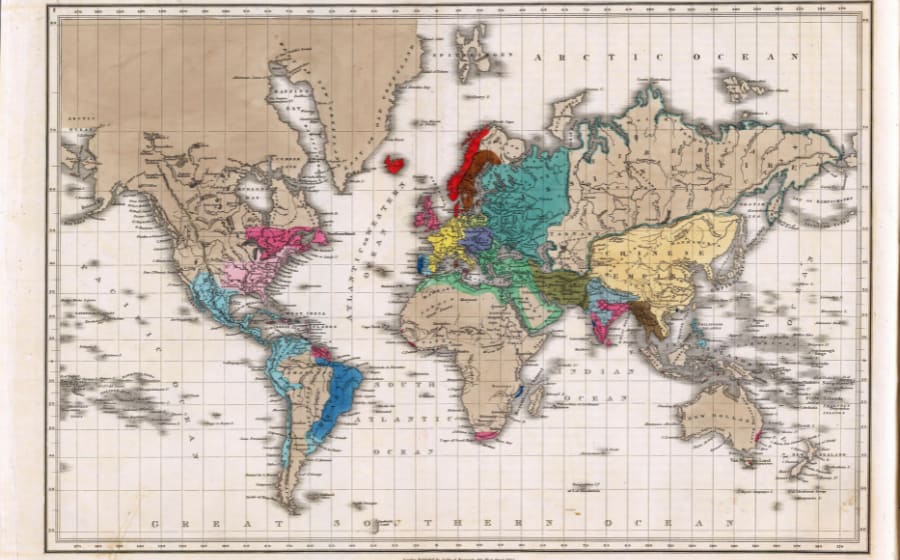Why is Spain Called Spain? The Real Origin of its Name
January 22, 2023
Win a FREE Trip to Spain!
Exciting Announcement! For the first time, we're thrilled to offer exclusive trips to the heart of Spain - an experience like no other. This isn't your typical tourist journey; it's a unique opportunity to immerse yourself in authentic Spanish culture, alongside real locals and our passionate team.
But there's more! Simply by requesting information about this amazing trip, you'll be entered into a special draw to win a Fully Paid Trip to Spain for Two. And that's not all - everyone who inquires will receive an exclusive bonus gift, valued at $500, available only now.
Ready to Discover the Real Spain?Click Here ↑ to Request Information & Enter the Draw!
Have you ever wondered where the word Spain, “España” in Spanish, comes from?
Due to the presence of different cultures in the Iberian Peninsula throughout the centuries, Spain evolved and acquired different names.
So if we want to understand the origin and how its name came about, we have to go back several years. In this post, we will talk about “why Spain is called Spain” for all those curious people who want to know the origin of the name of the Hispanic country.
Ready for a little history lesson? I promise to keep it simple so you can understand and have no doubts!
P.S.: These are questions that usually fall in the History part of the Trivial game, so it will be good for you to read this post to win the next time you play!
Table of Contents ▼ ▶
Why is Spain called Spain?

Historians explain that the name Spain derives from the word Hispania, the term the Romans used to refer to the Iberian Peninsula (including Spain and Portugal).
There are several theories about the origin of the name Hispania, some of them are the following:
- Phoenician hypothesis: This is the most accepted theory. According to this theory, the term Hispania comes from “i-spn-ya,” used since the 2nd century B.C. This term means “Island of the rabbits.” The Phoenicians were the first culture to find a non-Iberian city in the region since they were a people with an extensive trade that expanded throughout much of the Mediterranean.
- Iberian hypothesis: The word Hispania could come from the Iberian word “Hispalis,” which means “the city of the West.” According to this hypothesis, Hispalis was the territory’s central city, and later civilizations decided to give this name to the whole region.
- Basque hypothesis: Another theory states that the word Hispania comes from the Basque word “Izpania,” which means “that divides the sea.”
- Legendary hypothesis: According to this theory, the name Hispania and Hispalis could come from Hispalo and Hispano, son and grandson of Hercules.
The evolution of Spain’s name

- The Phoenicians
The first to arrive in Spain were the Phoenicians, who called the Iberian Peninsula “Sphania” and founded cities such as Cadiz and Malaga.
- The Greeks
After the Phoenicians came the Greeks, who named the Iberian Peninsula “Peninsula Ophioússa,” which means “land of snakes,” due to the large number of reptiles in the territory.
Later, they decided to call “Iberia,” the whole geographical area formed today by Spain and Portugal.
It is said that the word “Iberia” comes from the river “Iber,” probably the one currently known as the Ebro River. Although its origin could also be from another river, called Iberus, located by ancient texts of the 5th century B.C. in the province of Huelva (maybe it was the current Tinto river).
- The Romans
With the arrival of the Romans to the Peninsula, they first used the name “Iberia.” Still, they added an “h,” as Hiberia.
Over time some Latin writers such as Cicero, Pliny the Elder, Cato, and Catullus cited these lands as a place full of “damanes,” which are mammals very similar to rabbits. And from there, it began to be called Hispania, which meant “land abundant with rabbits.”
In fact, on some coins minted in the time of Hadrian, personifications of Hispania were reflected in the form of a seated lady with a rabbit at her feet.
If you want to know everything about why Spain was known as the land of rabbits, take a look at the following article:
The Land of Rabbits: The Curious Meaning Behind Spain’s Name
We also have an entire post dedicated to the presence of the Romans in Spain:
When the Visigoths arrived, they kept the toponym “Hispania visigoda.”
It was with King Leovigild that most of the territory of the Spanish peninsulas was united at the end of the 6th century, naming himself king of Gallaecia, Hispania, and Narbonensis.
- The Moors
However, with the arrival of the Muslims in 711, the name Hispania was replaced by the term Al-Andalus. The term Al-Andalus was adopted by the Muslims to refer to the territory they controlled in the Iberian Peninsula.
The Muslims were definitively expelled from the Peninsula in 1609, under the reign of Philip III. Thus ended the presence of Arabic-speaking communities in the Iberian Peninsula.
If you want to know more about the presence and influence of the Moors in Spain, don’t miss the following articles!
The Moors in Spain: Its Massive Influence and 7 Interesting Facts
Who were the Moors? Understanding their Culture, Origin and Legacy
- The Catholic Monarchs
After the expulsion of the Moors, the name of Spain was generalized throughout the Peninsula at the end of the 12th century.
They started to speak of five kingdoms of Spain: Granada (Muslim), Castile and Leon, Navarre, Portugal, and the Crown of Aragon. Some historians even talk of the Spains due to this political and cultural plurality.
In the year 1492, after the fall of Granada, the whole Peninsula (except Portugal) converged into a single kingdom.
With the union of the kingdoms of Castile and Aragon, the term Spain began to refer to the kingdom that emerged from the union of both territories.
Spain became a state to which the different conquests joined, forming the Spain we know today.
Are people from Spain Spanish or Spaniards?
Spaniards is a noun that refers to the people from Spain, while Spanish refers to the language and is also an adjective referring to things from Spain.
So, a Spaniard is a Spanish person and Spanish is the nationality or language.
We have created a post realtes to this topic so that you do not have any doubt:
I hope this post has been handy for you to understand the evolution of the name “Spain” and to identify the different cultures and civilizations that once occupied the Peninsula.
I find it fascinating to discover the history of our countries! Don’t you?












